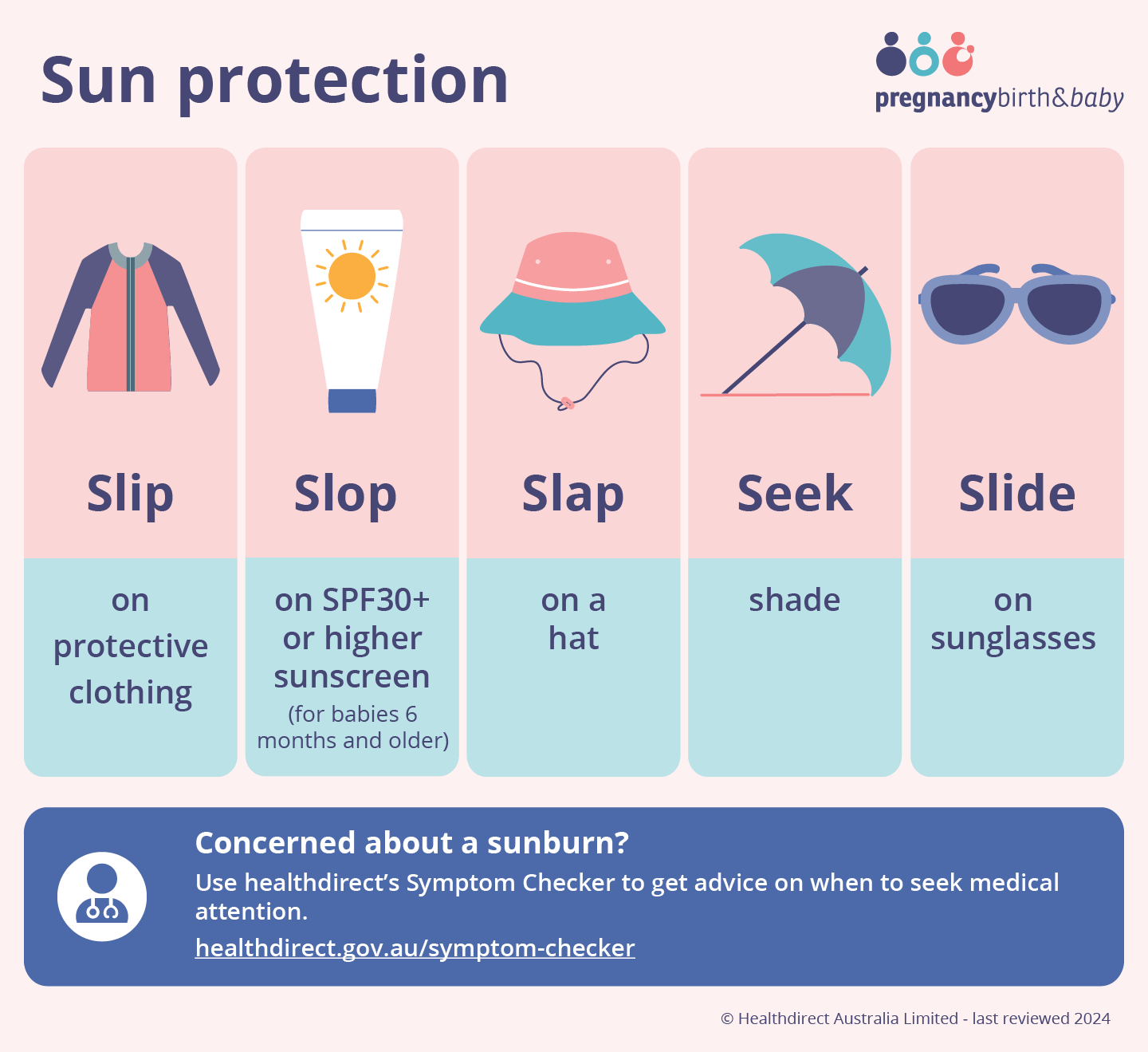Vitamin D for babies
6-minute read
Key facts
- Vitamin D is important for your baby’s development, especially their bones and muscles.
- Your baby will get most of the vitamin D they need from sunlight.
- Rickets is a bone deformity caused by very low vitamin D deficiency over time.
- If you think your baby might have low vitamin D, see your doctor — they can talk to you about treatment options including vitamin supplements.
What is vitamin D?
It’s important for your body to have enough Vitamin D. It is produced in your skin when you are exposed to sunlight.
Unlike other vitamins and minerals, only a small amount of vitamin D is found in food.
Why is vitamin D important for my baby?
Vitamin D is important for your baby’s development. Vitamin D helps your baby absorb nutrients like calcium and potassium to build strong bones and teeth.
Vitamin D also:
- plays a role in your baby’s early brain development
- helps your baby build strong muscles
- helps your baby develop a healthy immune system
How can my baby get vitamin D?
Babies can make most of the vitamin D they need in their skin. This happens when they are exposed to sunlight.
A very small amount of vitamin D can be found in foods like:
- fish
- eggs
- foods with added vitamin D like some milk, butter and infant formula
Breastmilk does not contain much vitamin D.
What are the causes of low vitamin D in babies?
Your baby may have low vitamin D levels if they don’t get enough sunlight. Babies may have low vitamin D when they:
- spend a lot of time indoors
- spend time outdoors fully covered in clothes
- have darker skin
Babies who are exclusively breastfed also have a higher chance of having low vitamin D.
What are the signs my baby might have low vitamin D?
Babies with low vitamin D may:
- develop or grow slowly
- get tired easily when playing or being active
- be irritable
Low vitamin D can lead to problems absorbing calcium into your body. If your baby has low calcium, they may have:
- muscle weakness
- muscle cramps
- bone pain
- seizures
Seizures are an uncommon symptom. They are most likely to happen in babies under 12 months old.
If your child is having a seizure, stay with them until the seizure has finished. Call an ambulance if:
- this is their first seizure
- the seizure lasts longer than 5 minutes
- they are unresponsive for more than 5 minutes
- they have another seizure
Some babies with low vitamin D do not have any symptoms.
CHECK YOUR SYMPTOMS — Use the Symptom Checker and find out if you need to seek medical help.
When should I see my doctor?
If you think that your child has low vitamin D, speak to your doctor. They can help diagnose and treat low vitamin D.
FIND A HEALTH SERVICE — The Service Finder can help you find doctors, pharmacies, hospitals and other health services.
How is low vitamin D diagnosed?
To diagnose vitamin D deficiency (shortage in the body), your doctor will examine your baby.
They will check your baby’s skin type to see if they are likely to have low vitamin D.
They can check if your baby has met developmental milestones for their age.
If your doctor thinks that your baby has vitamin D deficiency they may order blood tests. The tests can tell them your baby’s vitamin D levels, and how much more vitamin D they need.
How is low vitamin D treated?
There are ways that low vitamin D in babies can be treated.
Vitamin D supplements
If you’re pregnant, you may need to take a vitamin D supplement. This can help your baby have enough vitamin D in their first few months of life.
If your baby has low vitamin D, they should be treated to get their levels back to normal. You can get vitamin D supplements from your local pharmacy. You do not need a prescription. How much vitamin D your child needs will depend on how old they are, and how severe their deficiency is. Talk to your doctor or pharmacist.
Vitamin D supplements come as a liquid. Some come with a dropper, and others can be measured with a syringe.
Give your baby their vitamin D dose based on your doctor’s advice.
Here are some tips for giving your baby vitamin D supplements:
- Use a medicine syringe, rather than a teaspoon to measure the dose correctly.
- Put the dose they need directly into their mouth — you can aim for the inside of their cheek.
- Do not put the vitamin D dose in your baby’s bottle or mix it with their food — they may not finish it.
- If you miss a dose follow the instructions on the pack or ask your pharmacist what to do.
After 3 months of treatment, your baby should have another blood test to check their vitamin D levels.
Time in the sun
You can help your baby to spend time outside in the sun to get enough vitamin D.
It is still important to be sun safe. To protect your baby’s skin and eyes, dress them with a hat and sunglasses. If your baby has fair skin, using sunscreen as recommended will not stop them from getting enough vitamin D. If your baby has dark skin, short periods outside without sunscreen can help them get enough vitamin D.

Calcium
If your baby has low vitamin D, it’s also important that they have enough calcium.
Babies get calcium from breastmilk or formula milk.
From 6 months old, children can get calcium from:
- cow's milk
- cheese
- yoghurt
- non-dairy milk with added calcium
Babies under 12 months old should not be given cow’s milk as their main drink.
What are the possible complications of low vitamin D?
Severe vitamin D deficiency can lead to nutritional rickets.
Rickets is a bone disease that causes soft, weak bones. If your child has rickets, they may have:
- bowed legs
- teeth that come through late
- dental caries (cavities in their teeth)
- ribcage deformities
If your doctor thinks your child has rickets, they may order an x-ray to find out more.
Resources and support
Visit the Cancer Council website for information on how much sun exposure is needed to get enough vitamin D.

Speak to a maternal child health nurse
Call Pregnancy, Birth and Baby to speak to a maternal child health nurse on 1800 882 436 or video call. Available 7am to midnight (AET), 7 days a week.
Learn more here about the development and quality assurance of healthdirect content.
Last reviewed: July 2025






rendition-574c0b.png)


